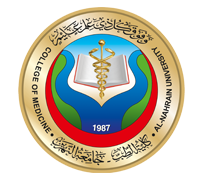|
Vol. 21 Issue 1 January - June / 2023
Published on website | Date : 2023-02-26 12:51:49
Barriers to Blood Glucose Control in Type 2 Diabetic Patients with Poor Glycemic Control in Kirkuk City/IraqZina A. Rashid, Aseel A. Naji, Zahraa H. IsmaeelAbstractBackground: Despite the presence of glycemic control guidelines, and the global trends in the delivery of patient care, especially on the primary health care level, many diabetics do not achieve the needed glycemic, blood pressure and cholesterol levels. Better glycemic control is critical in allowing patients to perform at their best in terms of diabetes management and preventing long-term complications.
Objective: To identify barriers that may contribute to poor glycemic control in a sample of Iraqi diabetic patients in Kirkuk city, Iraq. Methods: A cross-sectional study conducted during 2019 in outpatient's diabetic clinic in Azadi Teaching Hospital in Kirkuk, Iraq on diabetic patients with poor glycemic control. Results: The study included 195 diabetic patients with mean age of 55.54±9.260 years; while their mean HbA1c was 9.74±1.696 mg/dl. Duration of diabetes was 6 to 10 years among 86 (44.1%) patients, 154 (74.4%) patients used oral antidiabetic drug, 5 (2.6%) used insulin treatment. Regarding barriers, 126 (65.3%) lack of confidence in using insulin regimens, lack of necessary knowledge about insulin therapy 117 (60.6%), difficulty to perform exercise 125 (64.4%) and influence of complications or other chronic disease 100 (51.8%). Conclusion: Main barriers against good glycemic control reported by type 2 patients in this study were mainly poor knowledge regarding treatment, side effects of the disease itself or the medication and some social factors like unemployment and poor access to health care. Keywords: Glycemic control, barriers, diabetes complication Citation: Rashid ZA, Naji AA, Ismaeel ZH. Barriers to blood glucose control in type 2 diabetic patients with poor glycemic control in Kirkuk City/Iraq. Iraqi JMS. 2023; 21(1): 11-22. doi: 10.22578/IJMS.21.1.2 Full-text |
Some tools below are only available to our subscribers or users with an online account |
 |
Please wait until the current process completes ... |



